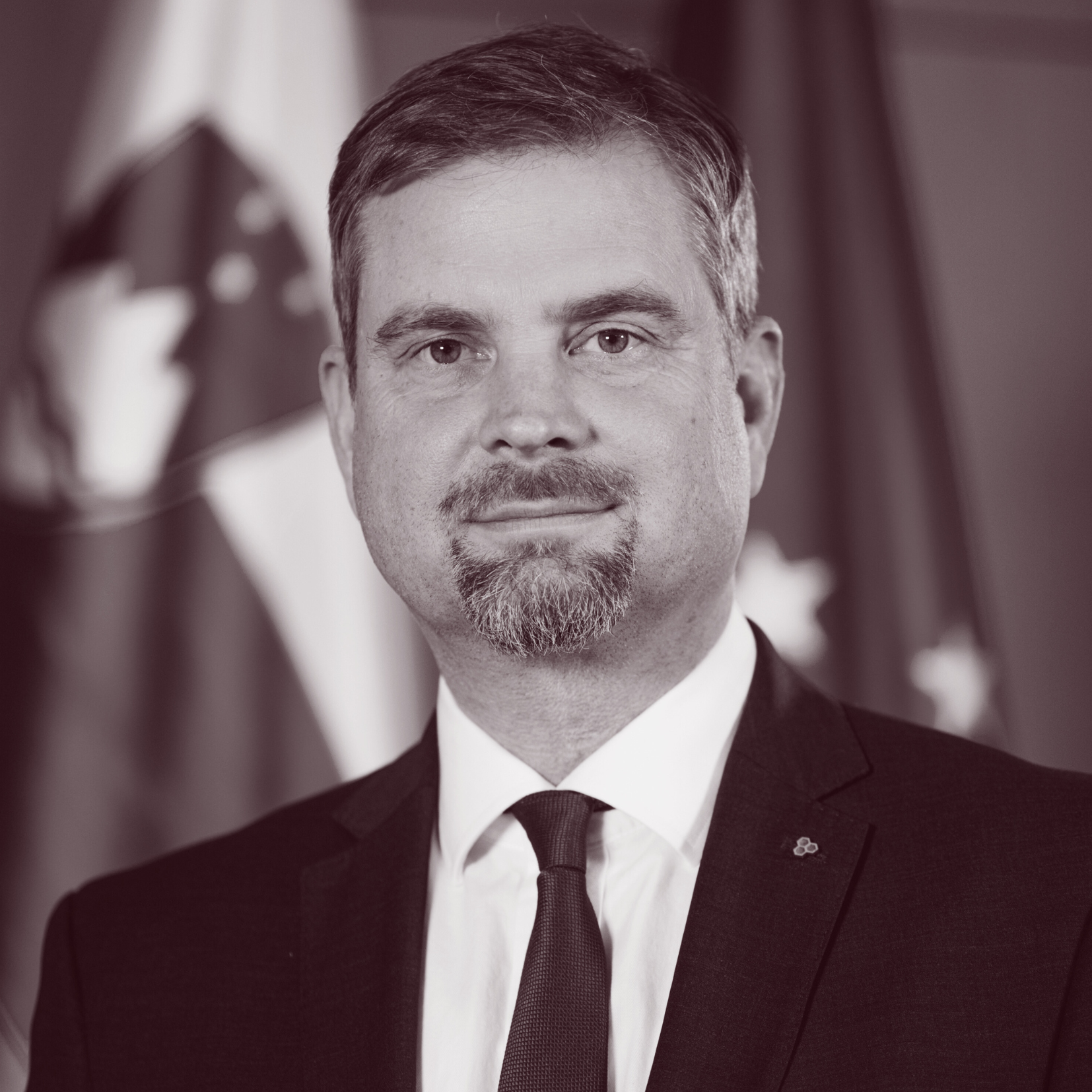About the event
In our official side event at the 4th International Conference on Financing for Development (FFD4), we co-hosted a conversation on Financing for Development and Feminist Foreign Policies: Exploring the Synergies.
Co-sponsored with the International Center for Research on Women (ICRW) , FEMNET (The African Women's Development and Communications Network), Government of Spain, Government of Colombia, Government of Mexico, Walking the Talk and Fundación para Estudio e Investigación de la Mujer, we convened key champions of feminist foreign and development policies, including government and civil society representatives, launched new research findings on the impact of FFPs on development financing and addressed FFD4 outcomes, offering recommendations for how to preserve—or even improve—investments in gender equality at a time of profound threats.
LINKING FINANCING FOR DEVELOPMENT AND FEMINIST FOREIGN POLICY
“Both [financing for development and feminist foreign policy] agendas acknowledge that development is so much more than just capital flows. In Addis, governments committed to leaving no one behind and FFP from early on aspired to an intersectional approach challenging those systems of oppression and gender and economic inequality…. Collaboration with civil society and our champion FFP governments—the Government of Spain, our host and steward of gender equality in this FFD4, the Government of Mexico, one of the four co-facitiators of the process, and the many others that defended and advocated in this process—this leadership and this collaboration between civil society and champion governments matters and works.”
Foteini Papagioti
Deputy Director of Policy and Advocacy, International Center for Research on Women
DEBT CANCELLATION, FISCAL JUSTICE AND STRUCTURAL CHANGE
“Last year, we produced a paper together with the Collaborative looking at why debt is a feminist foreign policy issue. Debt is not gender neutral. We have seen what austerity measures have done in terms of increasing the care burden. When you look at the principles around feminist foreign policy, it’s really to promote an economy of care, so when we are talking about debt, it’s important to look at how debt impacts the Global South…. It makes for a very unjust financial system which promotes debt as a perpetual systemic issue…. Using a feminist lens or feminist foreign policy principles allow us to question and interrogate the need for a fair economic system which restructures the current debt situation that we have. There is also a call for a global debt framework which is multilateral where we don’t have countries with more power determining the amount of debt that other countries should have.”
Memory Kachambwa
Executive Director, FEMNET - The African Women's Development and Communications Network
FEMINIST FOREIGN POLICY, OFFICIAL DEVELOPMENT ASSISTANCE AND EMERGING DATA
“In 2022, colleagues at the International Center for Research on Women asked, ‘Were there patterns in Official Development Assistance of countries with feminist foreign policies?’ Given the current rapidly changing context, we are updating that 2022 analysis…. What we do see clearly is that—using the most recent data available (2023)—countries with feminist foreign policies outperformed the OECD Development Assistance Committee average on gender equality ODA. For example, the DAC asks its members, ‘What do you spend on initiatives with a principal or primary objective for gender equality?’ And the report for the DAC is an overall average of bilateral allocable aid is 3.8 percent. For feminist foreign policy countries, at that time, it was 10.4 percent—so about three times better than the average.”
Beth Woroniuk
Senior Fellow, Feminist Foreign Policy Collaborative, on early findings of her research into FFP impacts on ODA
SPAIN: VIEWS AND IMPACT
“Our cooperation is guided by three thematic priorities: the economic empowerment of women, the eradication of all forms of violence against women and girls and the promotion of women’s leadership in decision-making spaces. These areas align with Spain’s feminist foreign policy and our 2024-2027 Master Plan for Development Cooperation…. Since we are navigating an era that is marked by overlapping global crises, economic instability, climate change, humanitarian disruptions, care deficits, compounding conflicts and crises, rising anti-rights political movements—in this context, multilateralism must be defended; it must be transformative and that transformation must have a feminist perspective…. Spain has enshrined this commitment in the 2023 Law on Cooperation on Sustainable Development and Global Solidarity. This piece of legislation is a pioneering legal framework that obliges us to uphold things such as sexual and reproductive rights as human rights, and to achieve 0.7 percent of our Gross National Income in Official Development Assistance by 2030. So while global financing for development is in retreat, particularly for gender equality, Spain will move forward: in 2024, our ODA was estimated at 4 billion euros, we have increased our core contribution to UN Women by 500 percent over two years and through our development agency we have sustained annual increases since 2022.”
Ana María Alonso Giganto
Ambassador-at-large for Feminist Foreign Policy, Ministry of Foreign Affairs, European Union and Cooperation, Government of Spain
COLOMBIA: VIEWS AND IMPACT
“Genuine alliances and power sharing—which States don’t like to talk about—between States and civil society has become even more urgent. In international fora such as the UN, including in the negotiations leading up to the Sevilla Commitment, Colombia pushed systematically for the inclusion of progressive language on gender, on diversity, on inclusivity—it’s become transversal to many other key issues of our general foreign policy, including debt restructuring, changes in the financial architecture, climate action, green transitions, in addition to more conventional issues such as peace, security and others. In this realm we’ve been particularly vocal on debates around ‘Beyond GDP,’ tax reform—both globally and regionally—and restructuring of debt. In the realm of care, our government has committed to the adoption of a national care system based on a successful model first adopted in Bogotá and have also created a National Ministry of Equality and Equity charged with this and a number of other broad issues related to a social, intersectional agenda.”
Arlene B. Tickner
Ambassador-at-large for Gender Issues and Feminist Global Policy, Ministry of Foreign Affairs, Government of Colombia
12 CALLS FROM CIVIL SOCIETY AND AFTER FFD4
“Our core message for FFD4 is very clear, it’s that feminist movements must be directly resourced and politically supported across all levels of financing for development…. For us, gender equality must be a cross-cutting commitment embedded in tax, debt, climate finance, trade and all major decisions that were made here…. So in the months ahead leading to our Financing for Feminist Futures Conference that we are organizing with the support of Spain this October, we have two critical areas of collective action. Number one is strengthening the alignment and the accountability between governments and civil society—we should align on a shared vision for FFD and gender justice financing using tools like ours and others to create mechanisms to hold each other accountable around gender-related commitments. Secondly, is investing in movements, so not just funding projects but resourcing feminist civil society, especially in the Global South to lead, monitor and shape economic and development policy.”
Bruna Martinez
Manager, Walking the Talk
MEXICO: VIEWS AND IMPACT
“Our feminist foreign policy was first adopted in 2020 and is guided by five interlinkages: the advancement of women’s and girls’ rights, substantive equality, gender parity, recognition of women in all their diversity and broad strategic alliances. These principles are anchored in our constitution and in decades of progressive diplomacy…. To address these principles, Mexico has produced concrete tools and initiatives that reflect its feminist foreign policy: gender lens sovereign bonds, another thematic debt instrument that ties public finance to equality targets; the Global Alliance for Care which was launched with UN Women and partners and which has put the care economy at the center of regional and global debates; and Mexico’s membership in the [Generation Equality Forum’s] Economic Justice and Rights Action Coalition through which we champion women’s access to credit, to land and to productive assets that advance our national strategy to prevent adolescent pregnancy. Also, our role as hosts of the upcoming Regional Conference on Women in Latin America and the Caribbean which will be devoted entirely to care economies and gender-responsive financing.”
Alicia Buenorostro Massieu
Ambassador and Deputy Permanent Representative, Permanent Mission of Mexico to the United Nations
SLOVENIA: VIEWS AND IMPACT
“We are deeply concerned about the global pushback of women’s rights in the past decade. The full, equal, meaningful and safe participation of women in all spheres and society is central to resilient, peaceful and all-inclusive societies and should be achievable within our lifetimes. As a male ambassador, I believe it’s vital that men actively champion feminist foreign policy not only because it leads to more just, peaceful and inclusive outcomes but because gender equality is a principle that I stand for. Supporting feminist values in diplomacy demonstrates that equality isn’t just a women’s issue, it’s a shared responsibility and a reflection of the world we live and want to live in. Slovenia underlines its commitment to mainstream a gender perspective and promote gender-responsive solutions in financing for development, including in humanitarian and recovery processes and development projects. By 2030, Slovenia aims to have at least 85 percent of its development projects include projects that support gender equality.”
Tadej Rupel
Ambassador of Slovenia to Spain and Andorra, Ministry of Foreign and European Affairs, Government of Slovenia
Speakers
Lyric Thompson, Founder and CEO, Feminist Foreign Policy Collaborative (moderator)
Foteini Papagioti, Deputy Director of Policy and Advocacy, International Center for Research on Women
Memory Kachambwa, Executive Director, FEMNET - The African Women's Development and Communications Network
Beth Woroniuk, Senior Fellow, Feminist Foreign Policy Collaborative
Ana María Alonso Giganto, Ambassador-at-large for Feminist Foreign Policy, Ministry of Foreign Affairs, European Union and Cooperation, Government of Spain
Arlene B. Tickner, Ambassador-at-large for Gender Issues and Global Feminist Policy, Ministry of Foreign Affairs, Government of Colombia
Alicia Buenrostro Massieu, Ambassador and Deputy Permanent Representative, Permanent Mission of Mexico to the United Nations
Bruna Martinez, Manager, Walking the Talk
Tadej Rupel, Ambassador of Slovenia to Spain and Andorra, Ministry of Foreign and European Affairs, Government of Slovenia
Co-sponsors
Feminist Foreign Policy Collaborative
International Center for Research on Women
FEMNET - The African Women's Development and Communications Network
Government of Spain
Government of Colombia
Government of Mexico
Walking the Talk
Fundación para Estudio e Investigación de la Mujer
Background
The 4th International Conference on Financing for Development (FFD4) is taking place amid monumental global challenges: life-altering cuts to development assistance; growing attacks on gender equality and human rights; increasing conflict, instability and climate change; and the fracturing of multilateral negotiations designed to address these very same issues.
The UN’s 2030 target for the Sustainable Development Goals (SDGs) is just five years away, yet research shows that no country is expected to achieve gender equality within that timeline. Furthermore, resources for the 2030 Agenda are increasingly constrained. In such a grave context, mobilizing global and multistakeholder support for gender equality is critical to ensure that all gains are not lost, or worse, reversed.
Ten years ago, the Addis Abba Agenda for Action reaffirmed that “gender equality, empowering all women and girls, and the full realization of their human rights are essential to achieving sustained, inclusive and equitable economic growth and sustainable development.” It reiterated the need for gender mainstreaming and recommitted to the adoption and strengthening of “sound policies and enforceable legislation and transformative actions for the promotion of gender equality and women’s and girls’ empowerment at all levels.”
It remains to be seen if the FFD4 outcome document will include similar commitments. As well, feminists from around the globe are calling for strong steps to address global inequalities, debt burdens, private sector accountability, and tax cooperation, emphasizing human rights.
In recent years, feminist foreign policies (FFPs) have emerged as powerful, innovative tools to encourage greater investment in gender equality, human rights and sustainable development. Feminist foreign policy governments and allies have committed to “mainstreaming a feminist perspective in the UN system and in other regional and international forums,” including FFD4, and also to “advance gender-responsive reforms, to reshape financial and economic systems to prioritize sustainability, climate justice and peace.” In adopting feminist foreign policies, governments–as well as multilateral organizations and international financial institutions–are reassessing their traditional ways of working and reorienting practices, and investments, in service of people, peace and planet.
This event will bring together key champions of feminist foreign and development policies, including government and civil society representatives, to advance the implementation of gender-transformative commitments and raise momentum for collective action. Speakers will address FFD4 outcomes, offer recommendations for gender equality in development finance, explore civil society visions for economic justice, and build multistakeholder and transnational solidarity around feminist foreign policy and the financing for development agenda.
Outcomes
To mobilize support for gender equality and human rights in the FFD4 agenda, recognizing feminist foreign and development policies as key drivers of progress
To highlight key challenges and demonstrate successes in financing for gender equality, sustainable development and climate justice
To spotlight diverse leadership and build partnerships between civil society and government champions of feminist foreign policy
To build momentum for longer-term engagement on this issue, and to encourage feminist leadership in upcoming multilateral forums (FFP conference in France, UN Climate Change Conference, World Social Summit, etc.)









